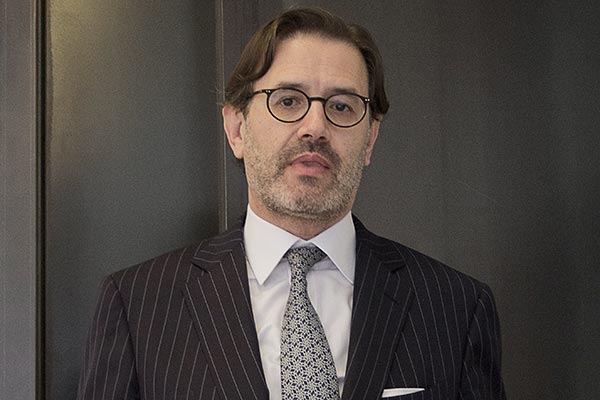
José Antonio Llorente
President of LLORENTE & CUENCA
“Technology allows us to do things that were impossible twenty years ago. Soon, we will be able to vote on the allocation of resources. This kind of power is a great challenge that we must be able to manage.”
What do you and other businesspeople expect from politics over the next few years?
There is a great disaffection between business people and politicians, or between society and politics, because the general public expects politics to come from politicians. We want politicians to be capable of working in the general interest of the people and for the common good. Businesspeople see too many partisan interests and strategies affected by party politics, and that’s why we call for a greater capacity for and commitment to reaching the agreements that are needed. Politics should be organized according to the interests of the general public, and those in authority should govern in line with those general interests. The top level of the business class is not happy with the situation, but we are also responsible since politics is a matter for everyone. Whether as individuals or organizations, citizens have to articulate a mechanism for participation. We shouldn’t just point out what the government must do but also what we can do to help improve the country’s situation and move it forward.
What sectors do you think are a priority?
All of them. Health, education, defense, foreign affairs, support for business development, and so on. The general public is not interested in partisan interests. The alternating nature of our system exists to manage common interests, and I think we have forgotten this fact.
What reforms are necessary?
Democracy is facing some fundamental challenges. Our idea is one man, one vote. But on some questions we have decided that voting is not practical. Nevertheless, there is a great deal of pressure among citizens who would like politicians to intervene in a whole range of issues. “Technology allows us to do things that were impossible twenty years ago. Today, representatives look toward citizens in an intuitive way when they govern. Soon, technology will allow us to vote on the allocation of resources. This kind of power is a great challenge that we must be able to manage. In the economic sphere, the shareholders’ AGM continues to be the highest level of management in a company, meeting once a year. These shareholders have changed many times over, since society has a level of mobility and capacity to generate an opinion that moves much faster than the systems that we have created to channel all of that. This is a great challenge. The speed at which public opinion takes one side or another on a particular issue, and the speed at which the justice system is able to resolve it, pose a huge dilemma. People want everything right now. This is something that we must respond to, since it generates a great deal of dissatisfaction and instability.
Do you think the Catalan issue will have an impact on Spain’s image?
In the markets that I work in, the Catalan issue generates surprise, incredulity, and stupor. In Latin America there is a very acute national conscience and this problem makes no sense to them.
What is the “eighth sense” you write of?
It has to do with today’s society, since we now expect communicators to know how to listen to and understand the context we live in. These days, effective communication is not synonymous with providing information but rather with conversation and participation.
